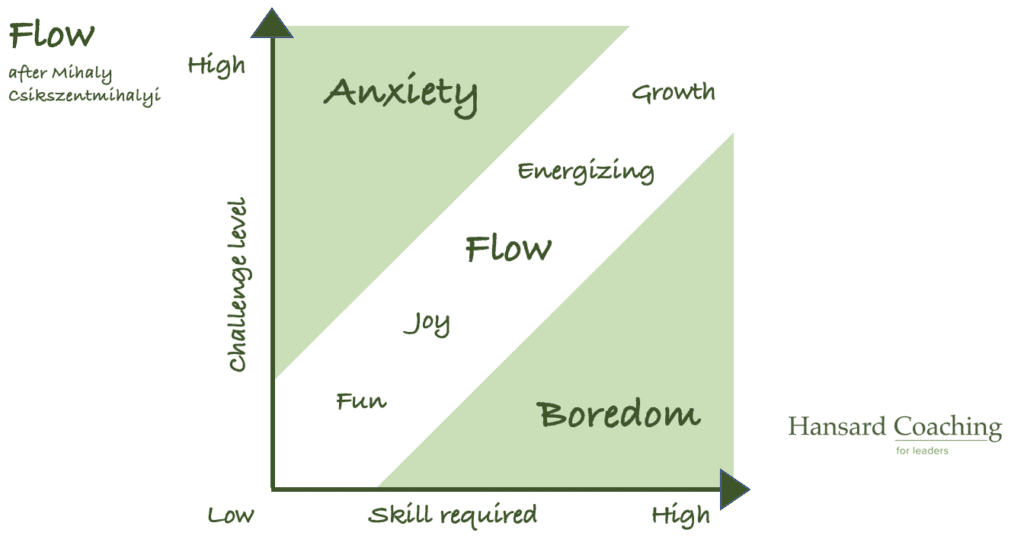
Get into the flow
Are there times when you are in the midst of things and feel invincible, when you believe that you can’t do anything wrong, and you want those moments to go on for as long as possible? The chances are that you are achieving what psychologist Mihaly Csikszentmihalyi calls “Flow”.
Flow is a period of time when your skills and abilities are in equilibrium with the challenge level required to complete whatever you are doing. If the challenge level is too high anxiety can take over and little gets done; conversely, if the activity is too easy, boredom and stagnation are at risk of setting in.
One of the many tasks of a successful leader is to do everything they can to achieve a state of flow for themselves and for those that they lead. To create either is a tough ask, however, being able to understand how this can be achieved consistently, and even on demand, is a phenomenally useful skill.

Let’s start with your flow. Reflect back on times when you are at your best and the most effective that you can be. What was in the DNA of these moments? Do you need to be in a particular place, or a particular time of day with particular things around you? Have you just been for a run, or got your “to do” list down to a minimum? What was it that led up to flow?
If you can think of one or more examples, what were the common themes between those moments of flow, and how can you recreate them?
If you find yourself in flow, try to be aware in the moment and be conscious of what got you there. Take a mental photograph of it if you can and put it on your virtual mantelpiece!
If you can begin to identify particular structures or systems that enabled your flow, grab them quickly as they are incredibly valuable, worthy of being cherished, and should be recreated whenever you can.
Then think about the relationship between the various tasks required of you and flow. If they are too hard or easy consider delegation. Focus on those things that are likely to play to your strengths and are more likely to bring energy, joy and growth.
Now let’s turn to your team’s flow. When were those moments when your team worked fantastically well together? Was the pressure on, or was everyone relaxed and relieved that a particular milestone or event had been achieved? Is flow more likely when you interfere or leave your team to get on with things?
Ask key members of your team what the best structures are for the group to work at its best. Discuss flow, and aim to create it when completing key tasks. Again, if the whole group understands and buys into creating the right circumstances to achieve particular tasks in the most effective way, you will all have a better chance of re-creating this environment on demand.
Align individuals to the tasks which suit them most, where an individual’s skill level is in equilibrium with the challenge level of that colleague. Get the whole team lined up against the right tasks so that flow and subsequent success are more likely.
Flow is a fantastic and glorious state to be in, and can be found and recreated. The more you begin to understand the DNA of what makes you and your colleagues create flow, the more successful both you and your collective team will be.